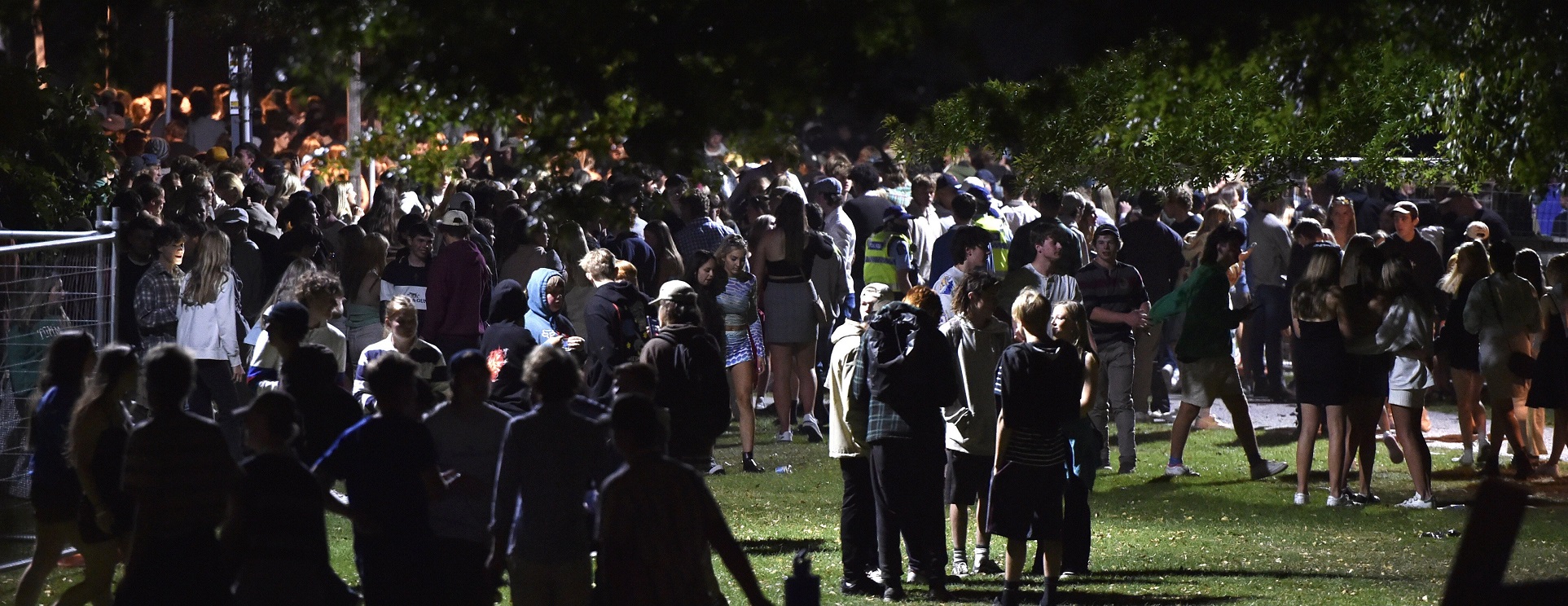Over the past decade, each town has reported challenges with large teenage gatherings and alcohol-harm related incidents.
Preventive measures were taken before the holiday period, and the Wanaka-Upper Clutha Community Board met local police for a workshop recently.
Board chairman Simon Telfer said one of the key topics of conversation was providing a safe New Year’s Eve environment for all residents and visitors to enjoy.
"We appreciate the planning and resources the police are putting into this period of the holiday season," Mr Telfer said.
Last week police released a video with former All Blacks coach Sir Steve Hansen urging visitors to Wanaka to respect the area and stay safe.

The annual Wanaka lakefront event on New Year’s Eve would return for 2022-23, a QLDC spokesperson said.
"Our budget for this New Year’s in both towns [Wanaka and Queenstown] is $260,000 which covers all items related to the events including Portaloos, fencing, security, stages, lighting and sound, bands, permits, fireworks and road closures.
"It also covers our contract with the Red Frogs for their invaluable support in providing safe zones in both towns on New Year’s Eve and the two days before."
The QLDC held debriefs with all event stakeholders after the annual New Year events to identify areas of improvement.
A Thames-Coromandel District Council (TCDC) spokesperson said they first noticed a spike in a large number of intoxicated young people gathering in Whangamata at New Year’s Eve seven years ago.
This resulted in a large police response, the TCDC spokesperson said.
"Since then our council has cancelled all formal New Year’s Eve events and while it has taken six years, and a few bumps, there is a definite trend with fewer intoxicated teens gathering on New Year’s Eve," they said.
TCDC budgeted $20,000 towards resources needed over the New Year period.
The Kaiteriteri community saw drunken disorderly incidents too, with some as young as 13 years old.
Kaiteriteri Recreation Reserve chief executive Mason Fitzgerald said he could only talk to the last two and a-half months, when he assumed the role of chief executive.
"But what I can say — I have camped at Kaiteriteri for many years and the youth portion of it has always been present.
"It’s probably accelerated in the last couple of years, just after Covid I think.
"Everyone’s sort of very keen to get away and get out. Certainly the last two years were quite bad actually."
This was seen in the youth predominantly binge-drinking and starting fights on the beach with each other, Mr Fitzgerald said.
They would have hired security, about 15 police officers and seven or eight rangers, he said.
"The realms of security and rangers alone would be around $5000 plus.
"It’s huge and it’s kind of disappointing because it’s wonderful to have people out there.
"If they’re all enjoying it responsibly it would be incredible — because it’s a lovely spot to go and watch the new year come in on the beach," Mr Fitzgerald said.







